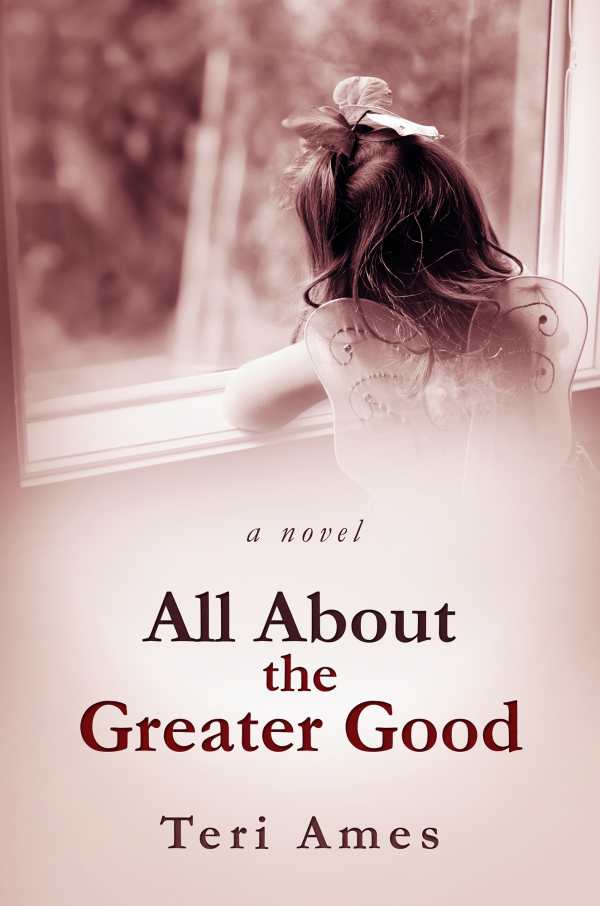All About the Greater Good
A Novel
Centering on failures of the justice system, this novel is a haunting take on the fragility of family relationships when they’re tested by extremes.
All About the Greater Good, a novel by Teri Ames, examines the power of failures in the criminal justice system that allow a single moment to change a family’s life.
When Sarah Bennett, director of a shelter in Middleton Falls, Vermont, is witnessed in a tense scene with her eight-year-old that is misread as intentional abuse, the Bennett household is torn apart by the charge. Chapters alternate between Sarah, who must avoid unsupervised contact with her daughter while enduring the pain of a damaged reputation; her husband, James, who struggles to fill her shoes in her absence; their son, Nicholas, whose perspective reveals unwelcome changes in his sister and parents; the state prosecutor, Tamara Goodwin, who is determined to seek a conviction; and Karen Driscoll, the police officer who wrote the report on the incident. The momentum stems from uncertainty over whether the case will be dismissed or taken to trial.
The writing lucidly demonstrates how a single version of events—in this case, the police version—can create a firestorm despite an absence of evidence, and how alternate versions can be repeatedly ignored. Public officials are depicted as determined individuals who believe the accused must be guilty, but the author resists portraying these characters as simply cynical and closed-minded. Instead, a series of all-too-human oversights, personal beliefs, pride, and circumstances converge to worsen Sarah’s case. Insightful sections reveal characters who justify their mistakes even after the cracks in Sarah’s case widen. Strong themes of bias and preconceived ideas about abusive adults run throughout.
The plot skillfully avoids drawing simple lines between the police, the prosecutor, and the Bennetts. The Bennett family contains its own imperfections, which complicate them in ways that keep them from seeming too victimized. Without minimizing the unfairness of their circumstances, a good portion of their problems are shown to stem from their inability to read each other’s real needs. First-person chapters create a sense of immediacy as the Bennetts reveal the impact of the case against Sarah, from her marriage to her standing in the community.
At times the intense focus on the case builds an oppressive atmosphere. Sections in the voice of Nicholas, for instance, sometimes read as complaints. The present-tense narration also tracks events in succession, including necessary legal details, which results in a novel of straightforward reportage. There’s less room to capture subtler facets of the Bennetts’ lives before Sarah’s fall from grace; such moments would underscore her loss.
All About the Greater Good is a haunting take on the fragility of family relationships when they’re tested by extremes. The conclusion offers no easy solutions to systemic problems, but profound support for those who have also experienced a false accusation.
Reviewed by
Karen Rigby
Disclosure: This article is not an endorsement, but a review. The publisher of this book provided free copies of the book and paid a small fee to have their book reviewed by a professional reviewer. Foreword Reviews and Clarion Reviews make no guarantee that the publisher will receive a positive review. Foreword Magazine, Inc. is disclosing this in accordance with the Federal Trade Commission’s 16 CFR, Part 255.

